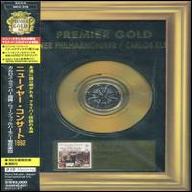Kleiber was born in Berlin in 1930, and his father, Erich, was also a respected conductor. To distance themselves from the fascist activities of Hitler and Mussolini, his family relocated to Buenos Aires around the mid-'30s. Kleiber attended schools in Argentina and Chile, where he played the piano and sang. By this time, his musical talents were obvious, but his father wanted him to pursue a non-musical profession. In 1949 he traveled to Switzerland, where he began studying law and chemistry at ETH Zurich. He eventually grew unhappy with this decision, and his father allowed him to return to Buenos Aires in 1950 to study music. After he completed his studies in 1952, Kleiber traveled to Munich, where he started his first professional appointment as a répétiteur at the Theater am Gärtnerplatz. Two years later, he made his conducting debut in a production of Millöcker's Gasparone. He accepted a similar appointment in 1956 at the Deutsche Oper am Rhein in Düsseldorf, and he became the conductor there in 1958. It was also around this time that he met the Slovenian ballet dancer Stanislava Brezovar, and they got married in 1961. Kleiber held conductor appointments with the Zurich Opera from 1964 to 1966, and the Württembergisches Staatstheater in Stuttgart from 1966 to 1968, and then he worked as a guest conductor with the Staatsoper in Munich.
Throughout the '70s, Kleiber had several debuts at major venues including the Vienna Operahouse in 1973, Covent Garden and La Scala in 1974, and he conducted the Chicago Symphony Orchestra in 1978. The milestones continued through the '80s, and he conducted debut performances with the London Symphony Orchestra in 1981, the Berlin Philharmonic Orchestra in 1982, and with the Metropolitan Opera Orchestra in 1988. During the late '70s, Kleiber gradually became more and more reclusive and reduced his public appearances. However, he continued accepting a limited number of guest conductor appointments and recording contracts until his retirement in the early '90s. All nine of his studio recordings were critically acclaimed, and his interpretations of Beethoven's Symphony No. 5 and Symphony No. 7 were especially revered. Along with his reclusiveness, Kleiber had also grown wary about recording. He was worried that listeners would play his recordings at home and follow along in the score to identify every flaw in the performance. Consequently, many unauthorized, unplanned, and bootleg audio and video recordings of his live performances were made. After his retirement, he spent his final years at his home in Slovenia, and he passed away in 2004. The November 2010 issue of the BBC Music Magazine showed Kleiber in the top position on their list of "20 Greatest Conductors of all Time." ~ RJ Lambert, Rovi












